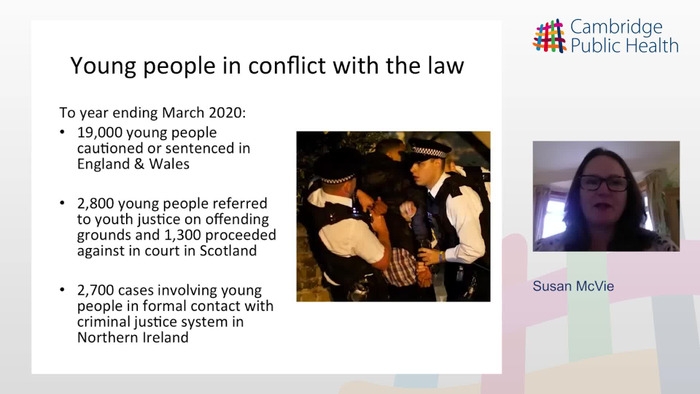Abstract
Tens of thousands of children and young people have adversarial contact with law enforcement agencies in the UK every year. Despite a large reduction in the prevalence of youth offending in recent years, available evidence shows that those who do come into contact with the police and other justice agencies are increasingly vulnerable and have complex needs. A very high proportion of them have problems with their mental health. Justice organisations are not necessarily equipped to cope with mental health problems and do not always have good assessment tools or suitably trained staff. However, a trauma informed approach to dealing with young people in conflict with the law offers significant promise in terms of identifying young people in mental distress and developing positive strategies for ensuring they are dealt with appropriately and effectively.
Video




